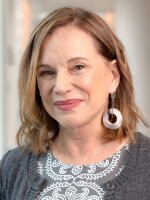RENEE MONTAGNE, host:
This is MORNING EDITION from NPR News. I'm Renee Montagne.
President Obama took his call for improved U.S.-Russian relations straight to the Russian people today. Speaking to the graduates of the New Economic School in Moscow, Mr. Obama outlined a vision of international cooperation with Russia and its citizens playing a prominent role. The speech comes one day after Mr. Obama's summit meeting with the Russian president, Dmitry Medvedev.
President BARACK OBAMA: This must be more than a fresh start between the Kremlin and the White House, though that is important, and I've had excellent discussions with both your president and your prime minister. It must be sustained effort among the American and Russian people to identify mutual interests and expand dialogue and cooperation that can pave the way to progress.
MONTAGNE: Joining us now from Moscow is NPR's Scott Horsley. And what sort of mutual interests Scott is Mr. Obama talking about?
SCOTT HORSLEY: Renee, one big area obviously is nuclear non-proliferation, and that was the focus of much of the talks and this tentative agreement that was struck yesterday between Mr. Obama and his Russian counterpart. The U.S. and Russia have the vast majority of the world's nuclear weapons, and they are both concerned about the spread of those weapons to other countries or even to rogue organizations like al-Qaida. Mr. Obama and President Medvedev also talked about cooperating to fight terrorism and extremism. And today, in speaking to this audience of future business people, Mr. Obama also talked about mending the global economy.
MONTAGNE: And today's speech offered a kind of big picture for some of the particulars that Mr. Obama and his Russian counterpart, President Medvedev, address yesterday. How does the president see the U.S. and Russia working together in the future?
HORSLEY: Well, he painted a picture where the U.S. and Russia are not so much competitors, where every U.S. gain is a Russian loss and vice versa, but rather partners who work together on issues of common concern, even if sometimes they do disagree. It's a vision in which the two countries are neither 20th century superpowers engaged in a tug of war nor 19th century empires lording over their own spheres of influence.
Pres. OBAMA: Given our interdependence, any world order that tries to elevate one nation or one group of people over another will inevitably fail. The pursuit of power is no longer a zero sum game. Progress must be shared.
HORSLEY: Now, one area where the two countries explicitly disagree is the former Soviet Republics of Georgia and Ukraine which Russia probably still sees in it's sphere of influence. Russia's war with Georgia last summer was a low point in U.S.-Russian relations. Mr. Obama has been fairly firm on this visit, saying Russia must respect Georgia and Ukrainian sovereignty. So there are some areas where this newfound partnership he's talking about is still a somewhat uneasy one.
MONTAGNE: And Scott, what's been the reaction from the Russian public to the visit by President Obama and also the first lady and her daughters?
HORSLEY: Fairly cool compared to what we've seen elsewhere around the world. The president's motorcades here don't attract the kind of cheering throngs we've seen elsewhere in Europe, for example. There are still a lot of Russians who view this relationship as a competition, and President Obama is not the kind of rock star here that he is in other parts of the world. Over the weekend, though, that famous reset button, the actual button that Secretary of State Hilary Clinton gave to the Russian foreign minister, was on display in Pushkin Square along with a cardboard cutout of Mr. Obama, and some Muscovites were gamely giving it a push.
And Mr. Obama played up to Russian pride today in his speech. He talked up Russia's contributions to literature, to science and to professional hockey. He singled out the Washington Capitals player Alexander Ovechkin. He also alluded to World War II, when Russia and the U.S., of course, were allies, and that's still a very big theme here in Russia, and Mr. Obama made a point yesterday of laying a wreath at Moscow's tomb of the unknown soldier.
MONTAGNE: And the president also met this morning, as he mentioned in his speech, with Prime Minister Vladimir Putin. Now, he's had less than kind words about the former President Putin, now of course prime minister. How did that meeting go? I gather one thing, he complimented them for the good weather.
HORSLEY: That's right. Well, the weather has definitely improved. There had been gray skies yesterday and they turned a bright blue today. Prime Minister Putin noted that there had been periods in U.S.-Russian relations that had been grayish in the past, and looking for an improvement there. Mr. Obama said it was an excellent opportunity that today's meeting was to put U.S.-Russian relations on a strong footing. Interesting choice of words for the president, who last week accused Putin of having one foot stuck in the old way of doing business.
MONTAGNE: NPR's Scott Horsley is traveling with President Obama in Russia. Thank you very much.
HORSLEY: My pleasure, Renee. Transcript provided by NPR, Copyright NPR.







